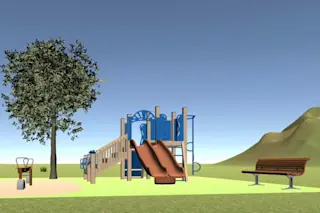When it comes to navigating areas, young children are a lot smarter than we give them credit for. Although past studies have proposed that our navigational abilities don’t truly kick in until the age of 12, a new study puts these claims to rest, revealing that children as young as 5 can find their way around large spaces.
The study, published in the Proceedings of the National Academy of Sciences, demonstrated the surprising cognitive capacity of five-year-olds as they navigated a tiny virtual town. Aiming to grasp how the brain develops at a young age, the study also showed how science can be introduced to children in a productive and engaging way.
One of the perennial dilemmas of neuroscience is distinguishing what knowledge comes baked into our brains at birth and what knowledge develops over time. Studies have used functional MRI (fMRI) technology to understand the brain on a deeper ...















